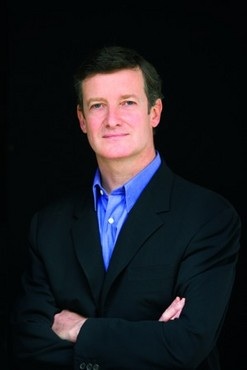Bicket, CSO achieve mixed results in basically Baroque program
This week the Chicago Symphony Orchestra is offering a program of Baroque and Baroque-inspired works under conductor Harry Bicket, music director of the English Consort and chief conductor of Santa Fe Opera. While Thursday night’s performances offered enough highlights to make for an enjoyable evening, the overall results proved mixed.
The “Dance Suite” from Platée by Jean-Philippe Rameau opened the concert. Principal percussionist Cynthia Yeh launched the opening storm section with a literal solo turn from the wind machine, which she played throughout the tempestuous movement, that scintillated with blistering runs from the strings and double reeds. The ensuing “Air pour des fous gais” and “Air pour des fous tristes” were laced with lurching downward glissandi, juxtaposed with fleet angular gestures.
A pair of Menuets followed, the first of which bore bucolic influences with sonorous open fifths in the low strings; the second was comprised of sinuous minor lines, sensitively adorned with chords by harpsichordist Mark Shuldiner. The closing “Air Pantomime” offered two jovial rigaudons, the first poised, the latter more unhinged with tipsy-sounding grace notes from the strings.
The billed soloist for Poulenc’s Concert champêtre, harpsichordist Kristian Bezuidenhout, canceled his appearance for health reasons, and was replaced by Tehran native Mahan Esfahani in his U.S. orchestra debut.
Ironically for a concerto, the most engrossing playing throughout came from the orchestra. The work’s central Andante showcased satiny woodwind solos from the principal players, and alternately suave and muscular horn contributions were provided by guest William Caballero, principal of the Pittsburgh Symphony Orchestra. Esfahani’s lightly projected instrument sounded monochromatic and simply did not compete in terms of color and intrigue with the urban-infused palette of Poulenc’s orchestration. One can understand why the composer arranged and often performed an alternate piano version.
Esfahani’s greatest contribution was a lesson in how not to comport oneself as a soloist. Dressed in a gray three-piece suit, he often slouched back in his chair while playing and stared at the floor during tuttis. He also provided a less-than-emphatically-solicited encore—Rameau’s Gavotte and Variations—that he introduced with a mini-lecture on the obscure place of the harpsichord in modern concert halls. Of his instrument’s current stature he said, “We still have a long way to go,” presumably meaning until the harpsichord enjoys anything like equal standing with the piano.
Bach’s Orchestral Suite No. 3, was performed in a wholly more thoughtful and refined vein. The expansive Overture was joyous and featured stirring rumbling from Shuldiner’s harpsichord. Concertmaster Robert Chen brought ebullient abandon to his solos in that movement, and introspective tenderness to the first solo repeats of the well-known Air. Christopher Martin’s stylish trumpet playing highlighted the closing dances and brought the evening to a triumphant conclusion.
The suite was preceded by Igor Stravinsky’s orchestration of four preludes and fugues from Bach’s Well-Tempered Clavier, the Russian composer’s final work. Bicket led a surprisingly flat performance that glossed over the intricate harmonic crests. William Buchman’s eloquent bassoon playing in the first two fugues was the exception, pitch perfect and intelligently inflected.
The program will be repeated 8 p.m. Friday and Saturday. cso.org; 312-294-3000.
Posted in Performances




Posted May 03, 2015 at 6:14 pm by Roland Buck
Variety is the spice of life in music, as well as other areas. A harpsichord sounds very different from a piano, just as an oboe sounds very different from a clarinet, so that there is room for both instruments. With a huge number of piano concertos being composed and performed, an occasional harpsichord concerto provides a welcome change of pace. This is why works like this should be welcomed.
Posted May 04, 2015 at 7:11 am by Robert Eisenberg
I was at the Saturday performance which was much as you described. For me, the Poulenc was simply boring, unlike so much of his music, and the encore was as you said (about something else) a lesson in what not to do.
In general, this was one of the least rewarding concerts I have heard in many years, since the appalling new music programming of Barenboim.
I am a great lover of Bach and early music, but this concert simply did not work.